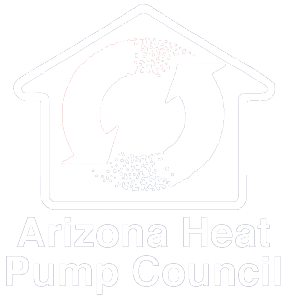
Air conditioning experts often ponder a simple question – what is the perfect temperature?
It’s All Relative
Albert Einstein’s celebrated general theory of relativity transformed the world of physics and astronomy. Not considered light reading, it is complex and difficult to understand. In the hopes of simplifying his concepts, this humorous anecdote has often been told, “When you place your hand on a hot stove for a minute, it feels like an hour; yet when you spend an hour with someone you’re attracted to, it goes by in a minute.” This comparison illustrates the point that the perception of time is relative. So too, is the perception of temperature.
Consider these examples. A round of golf in 80-degree winter weather in the dry Arizona desert (humidity less than 20 percent) feels comfortable. However, in the summer months, 80 degrees in muggy weather with the humidity climbing to 95 percent feels oppressive and stifling. It’s the same temperature, but the difference is the humidity. That’s why people from all over the world flock to Phoenix in winter. The weather is near perfect. Average daytime temperatures hover between 68 and 75 degrees while the relative humidity is an ideal 40 to 50 percent. As we all know, summer in Phoenix is another story.
What Is Humidity?
Humidity is the measure of moisture or water vapor in the air, which can be expressed in absolute humidity or, more commonly, the term most often used on TV weather forecasts, relative humidity. The higher the number, the more water vapor in the air. In Arizona, the months of July, August and September bring monsoons which carry moisture from the Gulf of California north over Mexica to Arizona. Monsoons greatly increase the amount of moisture in the air which you can feel as the storm approaches, and the outdoor temperature drops.
Why Does Humidity Make Humans Feel Hotter?
The human body has a built-in temperature regulator. As our bodies heat up, the hypothalamus triggers our perspiration response, and we start sweating. The water in sweat absorbs heat energy from inside the body and releases that heat as sweat, which evaporates through the pores in your skin (forehead, palms, arms and feet mostly.) If there is extra moisture in the air, your sweat doesn’t have the opportunity to evaporate as quickly, increasing your internal temperature and causing you to feel hot and sticky. Not unlike stepping out of the shower on a hot day in a closed bathroom. Though the water temperature was cool in the shower, upon getting out you notice perspiration on your forehead almost immediately, defeating the purpose of taking a shower in the first place.
Humidity in Your Home
Have you ever noticed water dripping from an air conditioner? Air conditioning systems not only lower the temperature, they also remove moisture from the air circulating inside your home. The evaporator coil of the air conditioner condenses excess water vapor (humidity) into liquid water which collects in the pan and is drained from the system. Think of a glass of iced tea on a hot, humid afternoon. Moisture (water vapor) in the air is condensed by the cold ice in your glass, creating drops of water which run down the side of the glass and pool on the table top.
Is Your Air Conditioning System Running at Maximum Efficiency?
Excess humidity, condensation, drips, drainage issues and standing water can present problems for air conditioning systems. With the monsoon season in full swing, don’t struggle with a malfunctioning air conditioner that isn’t reducing the humidity in your home. Call the pros at Cool Blew today.






